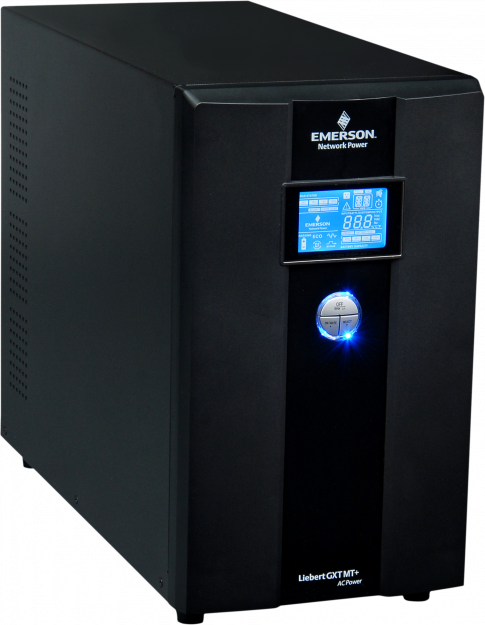Power Up: The Ultimate Guide to Choosing the Best UPS Batteries
Power Up: The Ultimate Guide to Choosing the Best UPS Batteries
Blog Article

In today's digital age, ensuring that your devices stay powered and protected is more important than ever. For both home and office environments, uninterrupted power supply systems, or UPS, play a crucial role in shielding sensitive electronics from power outages and fluctuations. At the heart of these systems are the UPS batteries, which provide the necessary backup power when it matters most. Choosing the right UPS batteries can make a significant difference in maintaining the functionality and longevity of your devices.
With a wide array of options available on the market, selecting the best UPS batteries can be overwhelming. Factors such as capacity, chemistry, and maintenance requirements all come into play when making a decision. This guide aims to simplify the process, helping you to understand what to look for and how to find the perfect UPS batteries to meet your specific needs. Whether you are protecting critical business equipment or home electronics, the right UPS solution can give you peace of mind and ensure that you're prepared for any power disruption.
Types of UPS Batteries
When selecting the best UPS batteries, it is essential to understand the different types available on the market. The most common types include sealed lead acid (SLA) batteries, lithium-ion batteries, and nickel-cadmium (NiCd) batteries. Each type has unique characteristics that make it suitable for specific applications. SLA batteries are known for their reliability and cost-effectiveness, making them a popular choice for many UPS systems.
Lithium-ion batteries have gained popularity due to their longer lifespan and lighter weight compared to traditional SLA batteries. They are also more efficient in terms of charging and discharging cycles, providing better performance in applications requiring frequent power support. However, lithium-ion UPS batteries tend to be more expensive upfront, although their longevity can offset the initial investment over time.
Nickel-cadmium (NiCd) batteries are often used in industrial settings due to their ability to withstand extreme temperatures and their extended service life. Though they are less commonly used in consumer UPS systems, NiCd batteries offer excellent deep cycling capabilities and can be quickly recharged. Each type of UPS battery has its advantages and disadvantages, so selecting the right one depends on the specific requirements of your equipment and the environment in which it operates.
Factors to Consider When Choosing UPS Batteries
When selecting UPS batteries, capacity is one of the most critical factors to evaluate. The capacity, measured in volt-amperes (VA) or watt-hours (Wh), determines how long your UPS can provide power during an outage. Consider the total load of the devices you want to protect and choose a UPS that can handle this load for the desired runtime. A higher capacity battery will generally provide longer backup time, but it is essential to balance capacity with your specific needs and budget.
Another important aspect to think about is battery chemistry. The two most common types of batteries used in UPS systems are lead-acid and lithium-ion. Lead-acid batteries are typically more affordable and reliable for short-term usage, while lithium-ion batteries tend to have a longer lifespan, higher efficiency, and reduced maintenance requirements. Depending on your operational needs, select a battery chemistry that aligns with your performance expectations and budget constraints.
Finally, consider the physical dimensions and weight of the UPS batteries. In many cases, space can be a premium, and understanding the weight of the batteries is crucial for installation and supporting infrastructure. Ensure that your UPS system can accommodate the size and weight of the batteries you choose. Additionally, factor in the placement within your environment; proper ventilation and access for maintenance should also guide your decision on battery selection.
Maintenance Tips for UPS Batteries
To ensure optimal performance and longevity of your UPS batteries, regular maintenance is essential. Start by inspecting the batteries at least once a month. Look for any signs of physical damage, corrosion on the terminals, or leaks. If you notice any issues, address them immediately to prevent further damage. Keeping the battery terminals clean and free of corrosion can improve connectivity and performance.
Temperature control is another vital aspect of UPS battery maintenance. Batteries should be kept in a cool, dry environment to avoid overheating, which can reduce battery life. Ideally, the room temperature should be maintained between 20 and 25 degrees Celsius. Additionally, avoid exposing the batteries to direct sunlight or extreme cold, as these conditions can cause deterioration and impact efficiency.
Uninterrupted Power Supply
Lastly, always perform regular testing of your UPS batteries. This includes checks on the charge and discharge cycles, as well as running simulation tests to ensure the UPS functions correctly under load. This proactive approach can alert you to potential issues before they become significant problems, ensuring that your backup power system remains reliable when you need it most.
Report this page